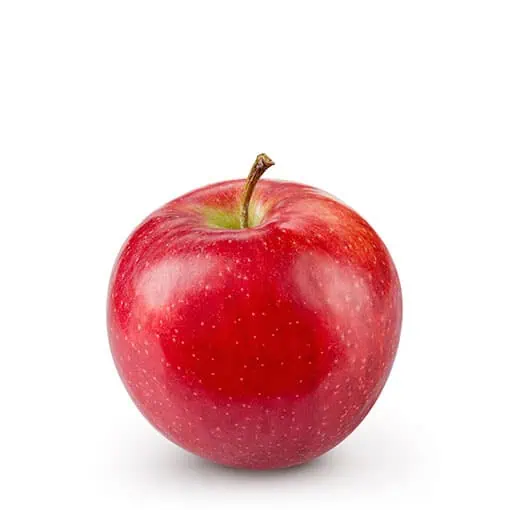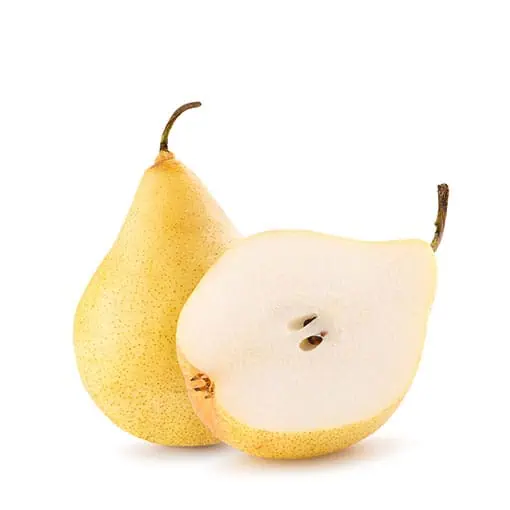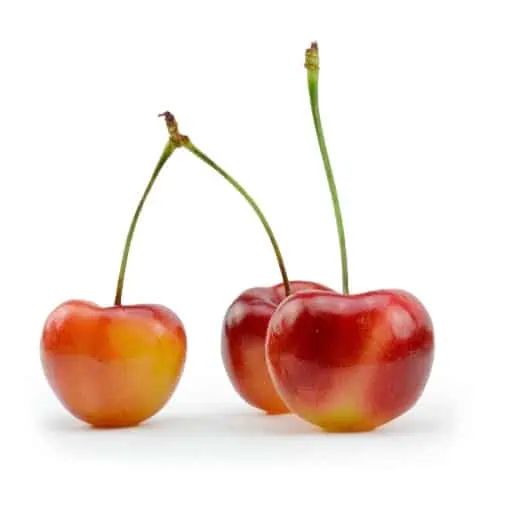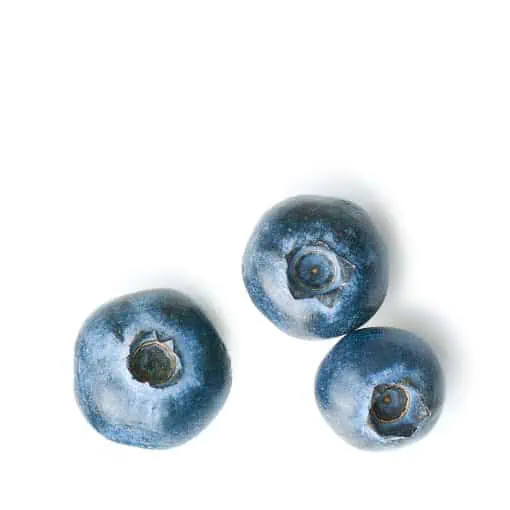FREQUENTLY ASKED QUESTIONS
You have questions, we have answers. Take a look through some of our most commonly asked questions.
Have a question about one of your fruits?




General FAQs
WHERE CAN I FIND YOUR ORGANIC FRUIT?
You can find our organic apples, pears, cherries, and blueberries in numerous retail chains across the nation. Send us a message and we will help you locate your nearest retailer. Keep in mind that blueberries and cherries are truly seasonal and only available for a short time durring the summer months.
SHOULD I WASH MY FRUIT BEFORE I EAT IT?
We recommend that you wash produce by holding it under running water for 15 seconds before eating.
DO NOT wash produce with detergent or bleach solutions. Fruits and vegetables are porous and can absorb the detergent or bleach, which is not intended for human consumption.
CAN A CONSUMER BUY FRUIT DIRECTLY FROM RAINIER?
We do not sell direct to consumers at this time, but our apples, pears, cherries and blueberries can be found in numerous stores throughout the country. Feel free to ask us which retailers stock Rainier fruit products in your area.
CAN I BUY A FRUIT TREE FROM YOU?
Growing your own tree fruit can be very rewarding (as we well know!), but we do not sell fruit trees. If you are interested in purchasing a tree, we recommend contacting your local nursery for guidance on the best varieties for your location.
DOES RAINIER GROW GENETICALLY MODIFIED FRUIT?
No. We do not grow or sell genetically modified fruit of any kind.
Apple FAQs
CAN YOU PLANT SEEDS FROM AN APPLE & GROW AN APPLE TRUE TO ITS VARIETY?
The answer to your question is both yes and no. Yes, you can plant the seed and grow apples, but they won’t be a duplicate of the Fujis you purchase in the grocery store. The Fuji apple is a cross between a Red Delicious and a Ralls Janet. In addition, the tree requires a pollinator. It’s very similar to having children. The offspring could look more like the mother or they could look more like the father. It’s the same with an apple; you can’t guarantee what the offspring will be. It may be similar to a Fuji, but it will not be a true Fuji. While this example uses the Fuji apple variety, the answer is the same for all apples, pears, and cherries.
If you’re interested in planting your own fruit tree, we encourage you to visit your local nursery first to find out which varieties grow best in your climate.
WHAT VARIETY OF APPLE IS IN THE BAG I JUST PURCHASED?
The variety description is located on the tag that closes the bag.
WHAT IS THE BEST WAY TO STORE APPLES?
If possible, store apples below 40 °F to keep them crisp longer. The produce drawer of your refrigerator is the best place to store apples. Apples ripen almost 10 times faster at room temperature! If you have large amounts of apples to store, find a cool, dark place such as a basement or garage and cover the box or basket with a clean, heavy, damp cloth to prevent shriveling. Inspect apples prior to storage, and remove any apples with punctures or broken skin.
Pear FAQs
HOW DO I SELECT AND RIPEN PEARS?
Pick pears that are free of cuts and blemishes to the skin. Keep in mind that surface russeting (brownish areas on the skin) is caused by weather and does not affect quality or flavor.
HOW DO I RIPEN PEARS?
Pears are picked when they are fully mature, but not ripe, leave pears at room temperature until the neck of the pear responds to a gentle pressure.
Cherries FAQs
CAN I GET A CHERRY PIT TO GROW INTO A TREE?
You can indeed grow a cherry tree from a seed, but it will not turn out the way you expect. There are two components to commercially grown cherry trees. One is the rootstock and the other is the specific cherry cultivar (i.e., variety) that is grafted onto the rootstock. Cherry trees do not produce a seed that is true to type. That means if you plant a seed it will indeed come up a cherry, but the fruit will probably be small and bad tasting. The best thing to do if you want cherries in your back yard is to buy a tree from your local nursery or from a catalog. The most common variety of dark sweet cherry is the Bing. Keep in mind that cherry trees are susceptible to bud damage from spring frost, so not all regions are suitable for planting.
What are Rainier cherries named after?
Rainier mountain! Washington’s tallest peak, Rainier stands 14,411’ high and is one of the state’s most marvelous sights.
How can I tell what kind of dark sweet cherry I’m eating?
It’s fairly difficult to identify what kind of dark sweet cherry you’re eating. We grow different varieties of cherries ranging from Bing to Sweethearts throughout the summer to maximize our growing period. We don’t label the variety of cherry like we do for apples, but feel free to send us a note and we will do our best to identify what kind of cherry you purchased.
Blueberries FAQs
CAN I TELL WHAT VARIETY OF BLUEBERRIES I AM EATING?
Unlike apples, we do not label what type of blueberries are packed. We grow about 10 different varieties of blueberries. Depending on point in the summer, it will change what kind you’re purchasing.
WHERE CAN I FIND YOUR ORGANIC BLUEBERRIES?
You can find them in multiple retailers through the US and Canada. Remember that blueberries are a truly seasonal crop and are only available during the summer months.
CAN I BUY BLUEBERRIES DIRECTLY FROM RAINIER?
Unfortunately, not at this time. Your best bet is to check with your local retailer for their availability of Rainier blueberries.
not seeing your question?
Feel free to shoot us a note and we will do our best to answer your question. You can reach us at: rainier@rainierfruit.com.
